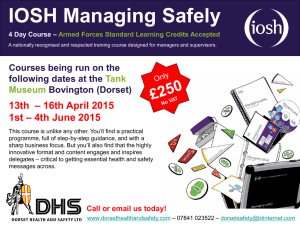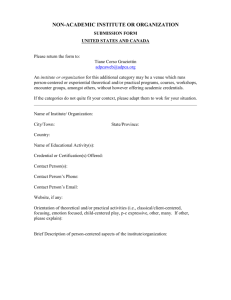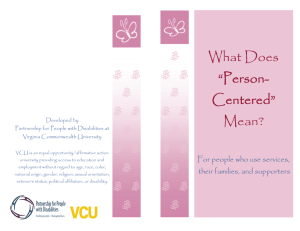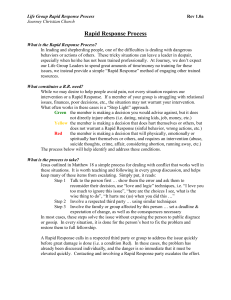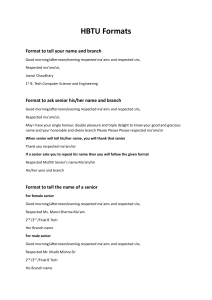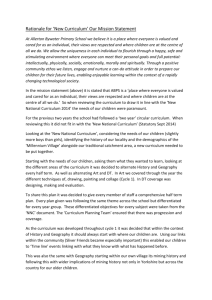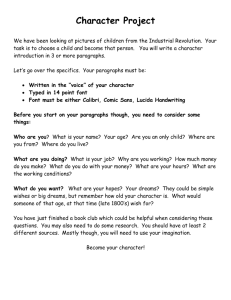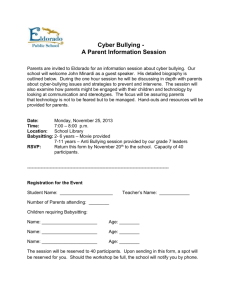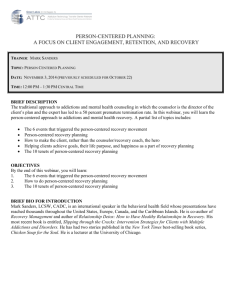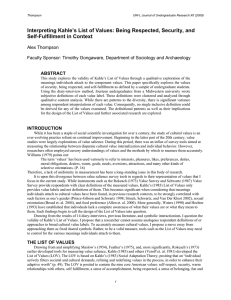here
advertisement
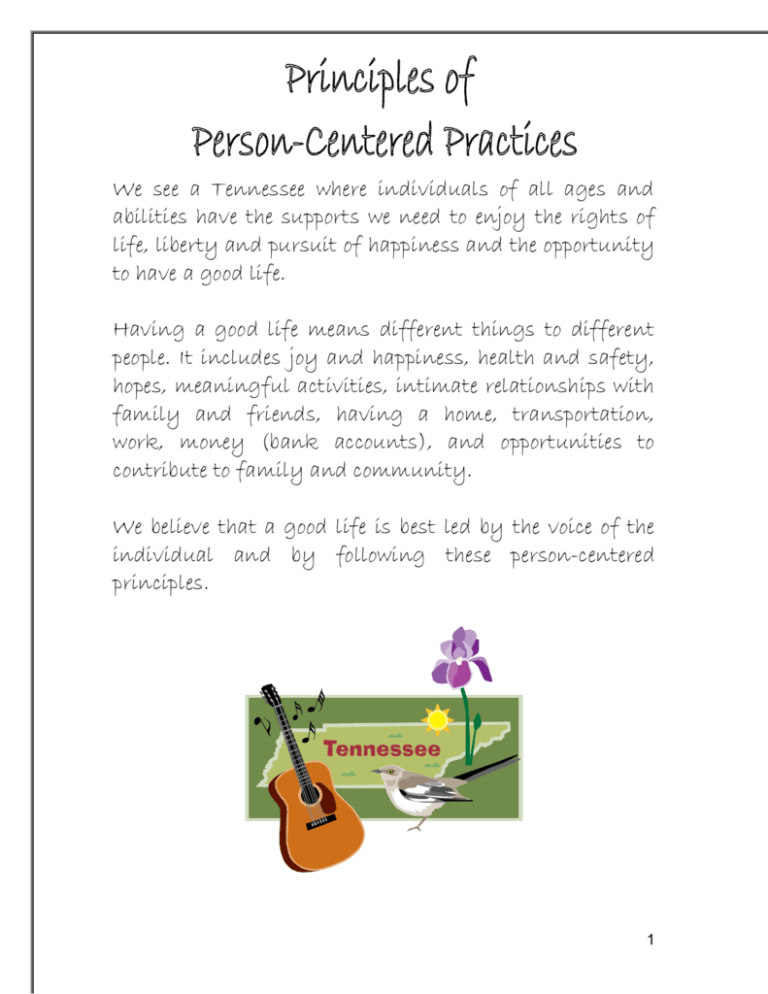
We see a Tennessee where individuals of all ages and abilities have the supports we need to enjoy the rights of life, liberty and pursuit of happiness and the opportunity to have a good life. Having a good life means different things to different people. It includes joy and happiness, health and safety, hopes, meaningful activities, intimate relationships with family and friends, having a home, transportation, work, money (bank accounts), and opportunities to contribute to family and community. We believe that a good life is best led by the voice of the individual and by following these person-centered principles. 1 “I am listened to.” “I have a voice.” “I listen to others.” Individual choices and descriptions of a good life are respected and followed. You can learn about the things that are important to me and my choices by getting to know me, by “listening” (even when I’m really speaking through my actions), and by asking different questions of me and of others who know and care about me. My story and experiences are seen as important and are used to help develop my plan. People who are involved in my support take time to share and learn about my history. I have what I need to fully take part in planning my own supports, including any assistive technology I need. I am able to share my needs and choices in the ways with which I am most comfortable and that are understood by others. People who know, care, and support me are learning about the things that are important to me and about my hopes and dreams. I invite people I want to be part of my life and to help with my planning. Things that are important to me because of my family background and my culture are respected and supported in helping me build a good life with others. My description of a good life is respected and shared by those who support me. Those who support me want my life and my plan to work for me. My plan for a good life for me is based on what’s important to me, on my choices, and on my hopes and dreams. 2 “I have friends and family I see often.” I am a part of my community.” “I have found groups, organizations and social activities that interest me. “ Relationships with families, friends and people in the community are very important and at the center of planning. I am supported in staying connected to my family, friends and community. I am supported in making new connections and friends. I receive supports to meet others with confidence and dignity. As I make new friends and connections, I have more people who care about me and who can support in my life. 3 “I have choices.” I am responsible for my choices.” “I am respected.” Personal choice and control are supported. My rights, responsibilities, and dignity are recognized and protected at all times. I am in charge of and responsible for my future, services, resources and the help I need. No matter how I communicate, I have the support I need to have the control I want over my life, services and resources. I have the right to change my plan at anytime. People who work with me on my plan regularly ask me what is important to me because things may change over time. I have choices about all of my supports, both the ones paid for and those that come from friends, family and other people I know. I have the right to take risks even when others don’t agree with my choices. I am supported to make my own choices and to learn from both the good ones and bad ones. I deserve to be supported to have a good life today and not “some day when I’m ready.” I choose how, when, and with whom to spend time and share my interests, gifts, and talents. I have the right to privacy. I choose supports that fit with my description of a good life for me. My plan and the supports that I need are not based on what others think are best for me. 4 “I am able to contribute to family and community.” “I learn new things.” “I am respected.” People are nice to me.” “I respect others.” “I am nice to others.” “I am respected.” The experience, talents, and contributions of individuals, families, and communities are strengthened and supported. Information that I need is easy to get and easy for me to understand. I have opportunities to learn new things in ways that work for me. The people who support me have the skills needed to do the job. They want the best for me, and they encourage me to be my best self. I am important as a person and I am able to contribute to my family and community. The things that I spend time doing and the changes in me for the better are based on my gifts, talents, and abilities. New and better ideas about how to support me and skills to do the job well are rewarded. 5 “I am responsible for my choices.” “I receive quality support.” “I am respected.” There is shared responsibility for supports and choices. Things that are written in my plan happen in my life. Support is available when my family, friends, and I need it. I am supported in taking responsibility for my choices and the things that I do. The people who support me understand my right to take risks and to learn from my good and bad choices. I understand my responsibility to try to make choices that keep me healthy and safe. Together we try to balance my right to take risks with my health and safety. Balance Important to Important for © The Learning Community for Essential Lifestyle Planning, Inc. 2006 (The Tennessee Division of Intellectual Disabilities Services wishes to thank the Virginia Person-Centered Practices Leadership Team and Virginia Systems Transformation Grant Resource Team for developing the Principles of Person-Centered Practices. This material has been adapted with permission.) 6

